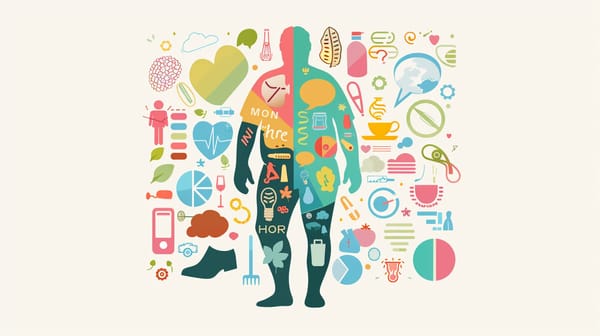7 Fitness Goals That Prove You're Getting Healthier (Besides Weight Loss)

Look Beyond the Scale for True Health Progress
While weight loss is one of the most common fitness goals, the number on the scale doesn't tell the whole story when it comes to health. Two people at the same weight can have vastly different body compositions, and BMI calculators fail to account for the ratio of muscle to fat.
If you're putting in the work to eat right and exercise regularly, there are many other metrics you can use to track your progress and see the positive changes happening in your body. Here are 7 signs you're getting healthier, even if your weight isn't budging:
1. Your Cardiovascular Endurance Improves
Cardiovascular endurance measures how efficiently your body uses oxygen during exercise. While you could get your VO2 max professionally tested, there are simpler ways to gauge improvement.
Using a heart rate monitor, notice if your heart doesn't struggle as much as it used to at the same intensity. Being able to run or walk farther than before in the same amount of time also indicates better endurance and cardiovascular health.
2. You're Getting Stronger
Evaluating strength gains is straightforward: track how much weight you're lifting and how many reps you can do at a given weight. If you can add more plates to your lifts or squeeze out extra reps of bodyweight moves like squats and pushups compared to a month ago, your strength is increasing.
3. Your Speed and Workout Intensity Increase
Unlike endurance measured over a longer duration, intensity improvements show up in short bursts. Running a faster 100-yard dash or fitting more burpees into a 30-second interval are signs you're progressing.
4. Your Energy Levels Are Higher
Although feeling exhausted after a tough workout is normal, consistent exercise actually boosts your overall energy. A University of Georgia study analyzing data from nearly 7,000 participants found that 90% of sedentary individuals who started exercising regularly reported less fatigue.
5. Your Blood Pressure Decreases
Keeping tabs on your blood pressure is a good way to see if your fitness efforts are paying off. Research shows that exercise can be as effective as medication for bringing down high blood pressure. HIIT, strength training, walking, running and cycling all do the trick.
6. You're Sleeping Better
Ample evidence links exercise to falling asleep faster and enjoying better sleep quality. Experts at Johns Hopkins recommend at least 30 minutes of moderate cardio to improve sleep the same night. And getting sufficient, high-quality sleep helps with making nutritious food choices and maintaining a healthy weight.
7. Your Clothes Fit Differently
If you're gaining muscle and losing fat, your body composition will change even if the scale doesn't budge. Muscle is denser than fat and takes up less space. Shrinking waistlines, thighs, and arms are reliable indicators your hard work is paying off.
The Big Picture of Progress
While weight loss is a worthy goal if you have pounds to lose, it's not the only way to measure success. Evaluating metrics like endurance, strength, energy, sleep, and how your clothes fit provide a more comprehensive view.
Improving your fitness is fantastic for your heart, muscles, bones and overall health. Pair that with the lifestyle benefits of more vitality and better sleep, and your healthy eating and exercise habits will serve you well for years to come - regardless of what the scale says.




